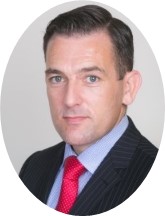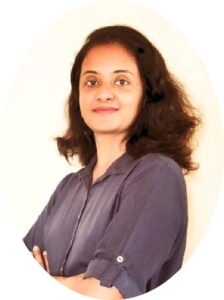IP experts behind the case: Mark Carmody & OncoMark
Introduction
OncoMark, an Ireland-based biotechnology start-up, is pioneer in developing a multi-parameter prognostic test named OncoMasTR for diagnosis of breast cancer. The OncoMasTR is developed by collaboration between Prof. Adrian Bracken at Trinity College Dublin (TCD) and Prof. William Gallagher at University College Dublin (UCD) in 2012. The technology was exclusively licensed to OncoMark. OncoMark subsequently developed and validated the test, that resulted in an acquisition of OncoMark by a large US firm, Cepheid.
The OncoMasTR test measures the expression of a number of prognostic genes and reference genes to estimate the probability of recurrence of breast cancer. The objective of OncoMasTR is to develop more accurate and reliable prognostic and predictive biomarkers to help both doctors and patients make better informed decisions with respect to the best treatment options, and to avoid costs and severe side-effects of unwarranted chemotherapy.
IP behind the case
To gain monopoly over the technology OncoMasTR, Prof. Bracken and Prof. Gallagher filed a joint priority patent application with the help of technology transfer offices (TTOs) of TCD and UCD. The joint patent application, for “A method for predicting risk of recurrence of cancer”, was filed with the EPO in 2014 (EP3194621), and subsequently a PCT application (PCT/EP2015/071524) was filed. Apart from filing the National Phase entry in the US and validating the patent in major European countries, OncoMark filed patent applications in large addressable markets such as, Canada, Japan, Israel, New Zealand, and Australia. In addition to patent applications, in 2016, the company also applied for a word mark (TM12158EU01) and a figurative (TM12157EU01) trade mark for OncoMasTR.
Current development
In 2021, the founders and management of OncoMark decided to reinvest the money they realised from the sale of OncoMark and established a new diagnostic start-up company called OncoAssure for developing new panels of cancer biomarkers for applications in prostate cancer, melanoma and other cancers. You can find more details about the technology transfer and growth of OncoMark in the EPO case study here.
The patent attorney behind the case
 We interviewed the patent attorney behind the case Mark Carmody on the role of IP for start-ups in diagnostic technologies. He is an experienced Patent Attorney with over 18 years’ experience, and has been with PurdyLucey team since 2010. He is a qualified European Patent Attorney, Irish Registered Patent Agent, a European Trade Mark and Design Attorney and an Irish Registered Trade Mark Agent. Because of his scientific background, his expertise lies in drafting and prosecuting Irish, US, UK and European patent applications in the fields of Life Science, Food and Dairy Science, Material Science, Medical Devices and Mechanical Devices.
We interviewed the patent attorney behind the case Mark Carmody on the role of IP for start-ups in diagnostic technologies. He is an experienced Patent Attorney with over 18 years’ experience, and has been with PurdyLucey team since 2010. He is a qualified European Patent Attorney, Irish Registered Patent Agent, a European Trade Mark and Design Attorney and an Irish Registered Trade Mark Agent. Because of his scientific background, his expertise lies in drafting and prosecuting Irish, US, UK and European patent applications in the fields of Life Science, Food and Dairy Science, Material Science, Medical Devices and Mechanical Devices.
IP business academy: Please tell us a little bit about your background.
Mark Carmody: I have a degree and PhD from the University Cork and spent 3-4 years as postdoc researcher in the genetics field. I wanted to work in academia, but through happenstance came into the field of IP. I received a job offer with an IP law firm in Osaka, Japan in 2005 and I spent 3 years working there until 2008. I felt very comfortable working with both technology and IP, since my strength in academia was finding solutions and pathways in research projects in the lab. Coming back to Dublin, Ireland, I qualified as a European Patent attorney and I have worked with PurdyLucey since 2010. My focus areas are mainly MedTech, BioTech and Material sciences.
IP business academy: Please tell us more about the challenges for start-ups regarding patents for diagnostic technologies.
Mark Carmody: I think the challenge in this busy field is that a lot of biomarkers are well known. Finding a novel combination or determining a new biomarker can be very challenging, for example, finding markers that are not identified to a specific disease. Determining such solutions and getting a patent granted is very promising for companies, especially for start-ups. Another challenge for start-ups is to find an investor to fund the patent application and grant process. Another challenge is in the US, where diagnostic methods in general are not patentable, so having an experienced US patent attorney who understands the challenges of the “law of nature” hurdle in the US, and advises how to draft US-specific claims accordingly.
IP business academy: How soon should researchers think about licensing the technology? And what care should be taken before approaching a potential licensee?
Mark Carmody: I think a good time is when start-ups have filed the priority application, particularly if they have good data. The priority application should be filed before they go to the conference and or think of publishing a paper. If they have a positive search report back from a patents office, then being armed with this will help and would be a good time to look for licensees. Additionally, when looking for a licensee you should have an understanding of where the relevant markets are for the technology, for example in the US, Europe, Japan, etc., and determine if the licensee is interested in those markets.
IP business academy: Do you suggest any due diligence a start-up owner should perform before licensing the technology?
Mark Carmody: For the start-up, it is important to do due diligence before they talk with the licensee so that they have an overview of the market and also to be able to say that their technology has freedom to operate (FTO) in those markets. Nevertheless, performing an FTO is very expensive and as a European Patent Attorney one can only provide on opinion on European applications with certainty, and we would recommend bringing a US counterpart on board when a relevant US patent also is considered to be important. The FTO puts the licensor in a better position and gives the licensee a positive feeling about the technology.
IP business academy: What do you suggest to include in licensing agreements?
Mark Carmody: We would always recommend that the agreement is in your favour. Having a strong get-out clause to terminate the license when it suits you or when milestones are not met by the licensee. What is also important is that the licensor remains the owner of the IP, controls the use of the IP, and ensures that the licensee cannot work outside the bounds of the agreement. We would always recommend that a good IP solicitor advises on these points.
About the interviewer:
 Poorti (Vyas) Joshi has a strong foundation in electronics and communications engineering and specialized training in Intellectual Property Law. Her expertise involves leading initiatives that harness technology for improved patent drafting and prosecution processes. The ever changing landscape of technologies and new additions have kept her motivated to be adaptable and analytical. As a Patent Professional, she deals with patent applications in different engineering fields. Starting from scrutinizing patentable ideas, her experience includes drafting of patent specifications for patent applications in different jurisdictions, for a wide variety of clients, starting from individual inventors and startups to multinational companies. Her expertise also includes preparing prosecution strategies and responses to examination reports for patent applications in different jurisdictions. Being a registered Patent Agent (India), she represents clients before the Patent Office in India. Her additional skills include IP strategy development for national and international filings for startups and SME.
Poorti (Vyas) Joshi has a strong foundation in electronics and communications engineering and specialized training in Intellectual Property Law. Her expertise involves leading initiatives that harness technology for improved patent drafting and prosecution processes. The ever changing landscape of technologies and new additions have kept her motivated to be adaptable and analytical. As a Patent Professional, she deals with patent applications in different engineering fields. Starting from scrutinizing patentable ideas, her experience includes drafting of patent specifications for patent applications in different jurisdictions, for a wide variety of clients, starting from individual inventors and startups to multinational companies. Her expertise also includes preparing prosecution strategies and responses to examination reports for patent applications in different jurisdictions. Being a registered Patent Agent (India), she represents clients before the Patent Office in India. Her additional skills include IP strategy development for national and international filings for startups and SME.



